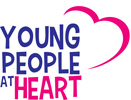What is Fostering?
Fostering is where a child or young person comes to live with a foster family because they can’t live at home with their own family. Children and young people come into care for a wide variety of reasons and our aim is to provide them with care, security and emotional support in your home by supporting you every step of the way.

